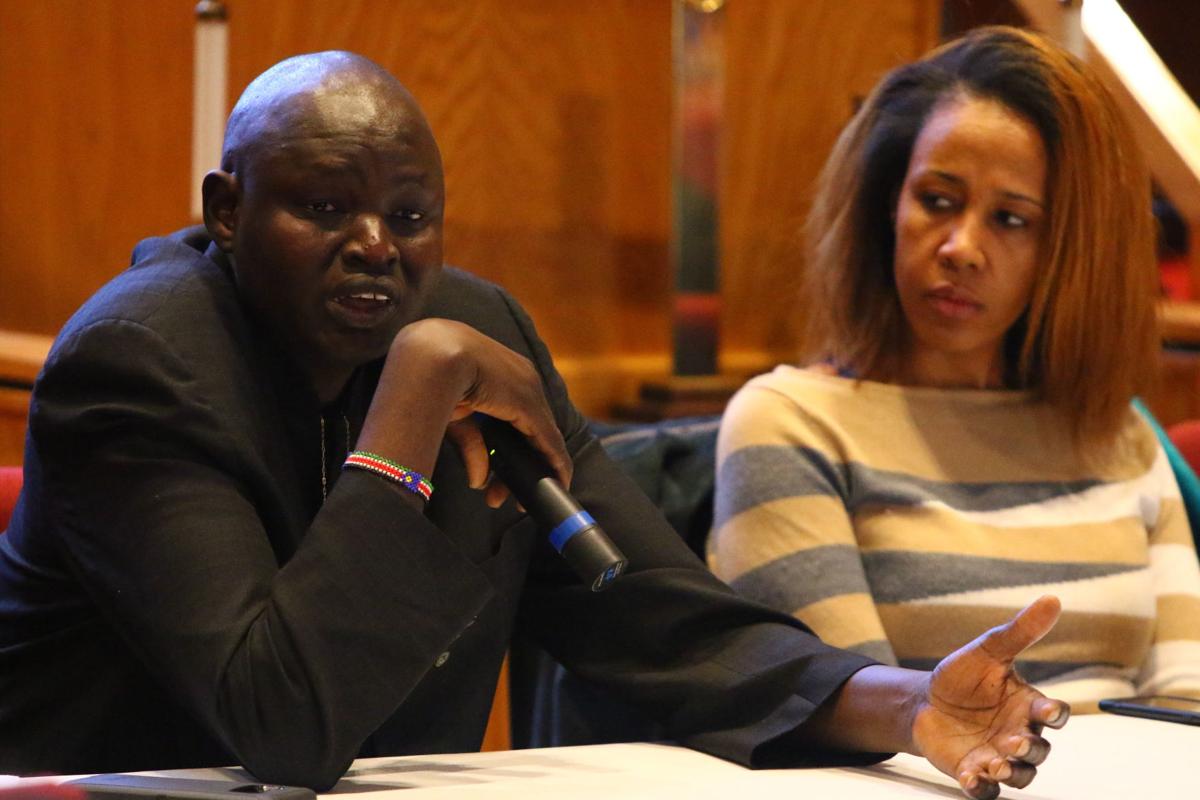{UAH} African immigrants talk about disconnect with African-Americans
African immigrants talk about disconnect with African-Americans
GARY — Abraham Mellish awed a group gathered Sunday afternoon at the Trinity United Church of Christ when he recited from memory a portion of a speech by Martin Luther King Jr.
Mellish said he came to love the well-known civil rights leader while growing up under very difficult circumstances in war-torn Liberia.
As a result, by the time he immigrated to the United States, he had elevated all African-Americans to a near demigod status. But he quickly discovered that is not the way African-Americans see themselves.
He soon discovered why.
"I've been in situations where we've been profiled," Mellish said, describing being pulled out of a car at night by police after doing nothing wrong.
"I was in shock," he said. "I wasn't aware of the reality."
The relationship between African-Americans and African immigrants was among the themes taken up during a panel discussion featuring immigrants from Sudan, Ethiopia and Liberia, who are now living in the greater Chicago area.
"There's a lot of disconnect between Africans and African-Americans," said Seenaa Jimjimo, who is of the Oromo people in Ethiopia.
Some of the problem is the media's portrayal of African-Americans, she said, which focuses on violence.
Yet there is also a different mindset between African-Americans and African immigrants.
"You came to another country to climb a mountain," Jimjimo said.
She shared an experience of being warned after arriving in this country to stay away from "black people," which left her baffled.
Gabriel Dut, who is among the well-known Lost Boys of Sudan, said he immigrated to the United States in 2001 with a positive view of African-Americans.
But he too quickly became aware of the disconnect in question when he was discouraged from giving to an African-American beggar, because of the assumption the person wouldn't put the money to good use.
"I was completely shocked," Dut said.
A high point they all shared was the election of Barack Obama as president of the United States, which transcended many of the differences discussed with a shared sense of hope.
Disclaimer:Everyone posting to this Forum bears the sole responsibility for any legal consequences of his or her postings, and hence statements and facts must be presented responsibly. Your continued membership signifies that you agree to this disclaimer and pledge to abide by our Rules and Guidelines.To unsubscribe from this group, send email to: ugandans-at-heart+unsubscribe@googlegroups.com










0 comments:
Post a Comment